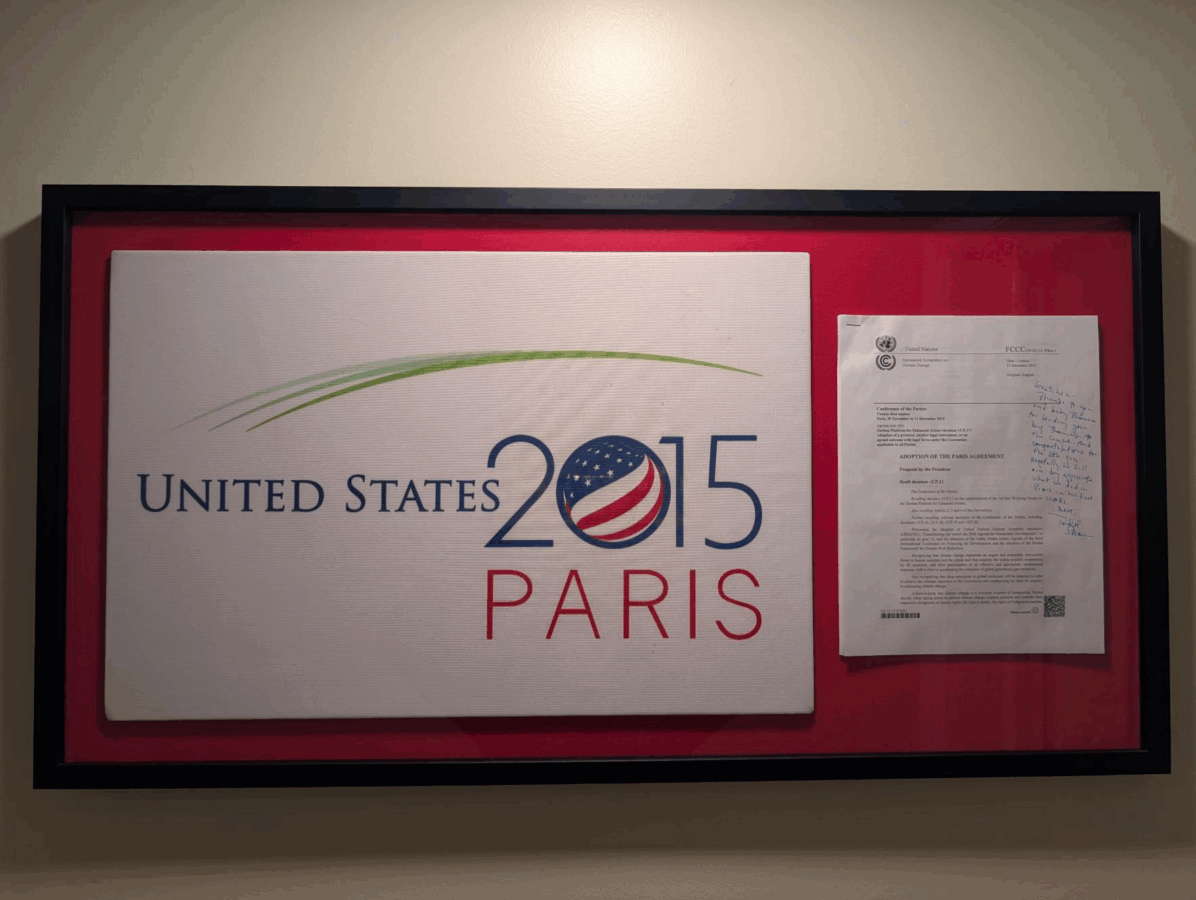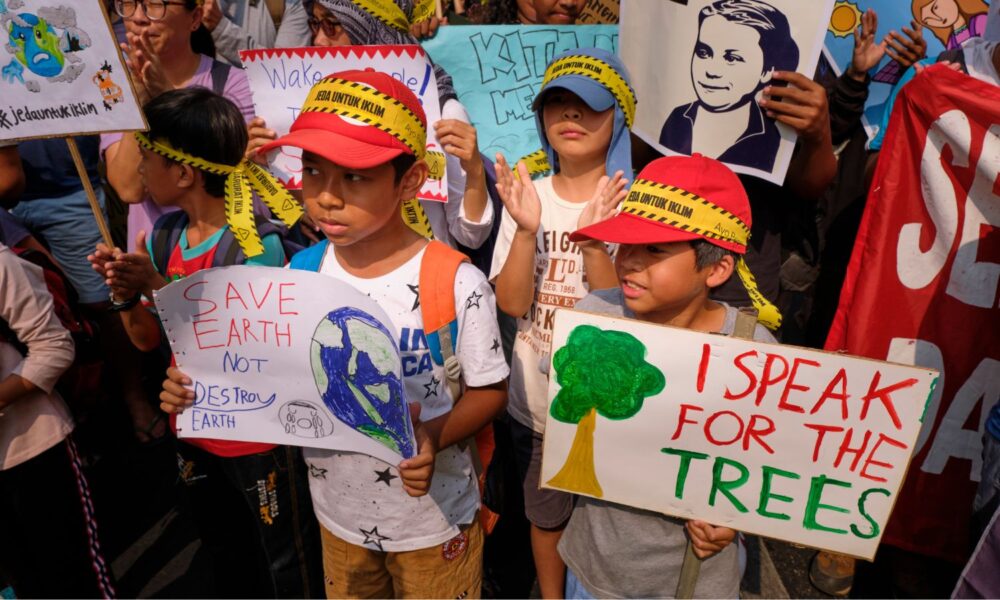In December 2015, my husband said goodbye to me and our two-day-old son in the Neonatal Intensive Care Unit and boarded a plane to Paris. He was traveling there to represent the United States at the United Nations’ annual climate conference, COP21.
We knew this would be hard on our new family in its early days. But as scientists working on tackling the climate crisis, we decided together it was important for him to be there, as this gathering would potentially yield climate action (or lack thereof) that would significantly affect our new son’s life—and this was an important chance to contribute to preserving a more livable planet for his future.

I followed the news from that conference as best as I could with my newborn, including getting dispatches from my UCS colleagues who were also participating (as we have since the very first such conferences). I was overjoyed when the most significant global climate commitment taken by that point in history was announced by its leadership. The Paris Agreement, as it’s now known, set in motion actions in countries around the world to reduce global warming emissions.
Over the subsequent years, global temperatures have risen as wealthier countries stall on climate action and the fossil fuel industry rakes in profits. My family has grown, and with it, my unwavering dedication to fighting for their future and the future of kids like them all over the world.
Six years after that historic Paris summit, I went into public service, working for the government first at the White House, and then to launch a climate research program at the US Department of Transportation. From there, I cheered on the legislative victories that were a game-changer for climate action: the Bipartisan Infrastructure Law (aka the Infrastructure Investment and Jobs Act) and the Inflation Reduction Act. These represented more progress in just a few years than I ever could have imagined in my decade previous as a scientist and advocate with the Union of Concerned Scientists (who were working hard for these and other legislative wins). We fought for and won the biggest opportunity yet to meet those Paris climate commitments. This convinced me to stay in government and focus on tackling the climate crisis.
Last year, it was my turn to say goodbye to my kids and fly around the world, to Baku, Azerbaijan, where I represented the US government at COP29, days after the presidential election. It was clear then that our hard-won climate progress at the federal level would face significant roadblocks under the incoming Trump administration. But I knew it was important to go: to show the world that many states, organizations, and people in the US were still committed to honoring the Paris Agreement and doing everything in our power to make climate progress. And it was important for me to show up for the next generation.

A full ten years post-Paris Agreement, the Trump administration is working to reverse the progress we’ve made—steps backward that we can ill afford right now, as global emissions reached new highs last year, and are on track to contribute to overshooting the Paris goal of limiting warming to well below 2 degrees Celsius, and as close to 1.5 degrees Celsius as possible. As my colleagues have bid farewell to their families and loved ones to journey to Belém, Brazil, for COP30, they will be there this year without an official US government delegation, under the shadow of President’s Trump’s intentions to withdraw from the Paris Agreement.
When I saw this quote from UN Secretary-General António Guterres:
“One thing is already clear: we will not be able to contain global warming below 1.5 degrees in the next few years.”
…I thought about the sacrifices so many of us have made to help the country and world make much needed climate progress. I thought of how UCS is doggedly working to inform equitable policies to prevent further warming and reduce pollution for all of us. I thought of a few of our recent wins, about how the choices we make now can still save lives, and how much it matters that we keep working to limit every tenth of a degree of warming.
And as COP30 is set to kick off Monday, I think of the blood, sweat, and tears that negotiators, scientists, advocates have put into driving progress at these conferences for decades. I think of the communities around the world—many who have contributed the least to climate emissions—now watching their homelands threatened by rising seas, more intense storms, drought, or fire. The injustice is cruel and palpable; the grief for what we have lost and will lose is real.
So: why keep fighting? Why attend COP30 at all? Why do my colleagues, peers, and I persist, despite the crushing setbacks?
My colleagues and I do this work because we must. We are motivated by the dire consequences we know are ahead for frontline communities. We are driven by the responsibility we have for all children’s present and future. We know what a better world could look like, free from the influence of Big Oil and its endless greed, and with principled leadership who put our health and safety ahead of special interests. Scientists have been raising the alarm on the dire consequences of burning fossil fuels for decades. Our coalition has only grown and become more powerful and determined. Why would we stop now?
I think about what I will one day say to my kids about this moment in our history. I want them to know we never gave up.

My NICU baby is now a nine-year-old with big ideas about the future. I want the world for him, and every child everywhere discovering the joy and potential of this planet. The work we do is for them; their future is worth the fight.

